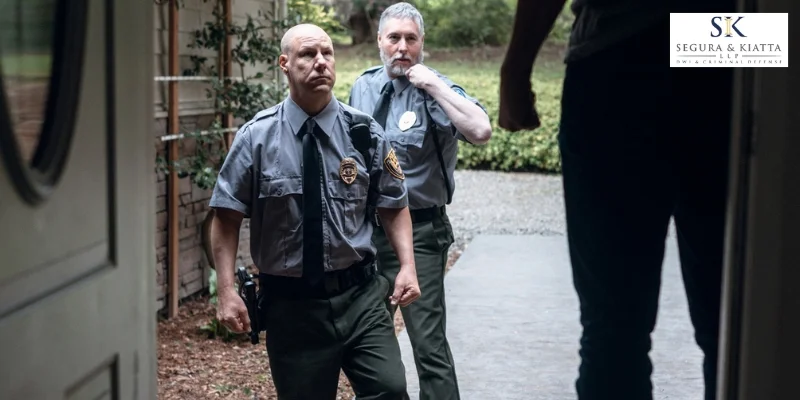
- Available 24/7
- 281.570.6400
- call us today!
Can Police Search Your House Without a Warrant in Texas?

Your Fourth Amendment Rights
Under the Fourth Amendment to the United States Constitution, you are protected from unreasonable searches and seizures. In general, a search is considered unreasonable if it is conducted without a valid warrant signed by a judge. There are only a few narrow exceptions to this rule.
If a police officer comes to your home and asks for permission to search, you have the absolute right to say no. You do not have to allow officers into your home without a warrant. In fact, you should refuse any request to search your property until you’ve spoken with a lawyer.
What Happens If Police Search Without a Warrant?
If the police conduct a search of your home without a valid warrant or without a lawful exception, any evidence they collect is usually inadmissible in court. In other words, that evidence can be thrown out and cannot be used against you at trial.
Let’s talk about the few situations when police can search without a warrant.
Exceptions to the Warrant Requirement
- Consent
If you voluntarily give permission to the police to search your home, they do not need a warrant. This is why it’s so important to clearly state that you do not consent to a search.
- Exigent Circumstances
This applies when police have probable cause to believe evidence might be destroyed or someone’s life may be in danger, and there’s no time to get a warrant. For example, if officers believe someone is being harmed or evidence is about to be destroyed, they may enter to prevent immediate danger.
- Plain View Doctrine
If the police are lawfully present and see illegal items in plain sight, for example, drugs or weapons visible from your front door, that can give them grounds to enter without a warrant.
Even so, these exceptions are very limited and closely scrutinized in court.
Why Legal Review of a Search of Your Home Is Critical?
Even when officers have a warrant, your lawyer must review the search of your home carefully to make sure it’s valid. The warrant must specify exactly where police can search, what they’re looking for, and provide specific, verifiable reasons for believing illegal items are inside.
We’ve seen many cases where officers exceeded their authority or conducted a search that didn’t follow proper procedure. When that happens, judges often rule that the evidence is inadmissible, and that can make or break a criminal case.
What to Do If Police Come to Search Your Home?
If police show up at your house, stay calm. Do not interfere, but clearly and politely say:
“I do not consent to any searches.”
Then contact a criminal defense lawyer immediately. Even if a search has already happened, your attorney can challenge the legality of the search and fight to have any improperly obtained evidence excluded from court.
Many people worry that refusing a search of their home will make them look guilty. But remember, exercising your constitutional rights is not an admission of guilt. It is your legal protection.
Protect Your Rights in Texas
If you’ve been arrested or are facing criminal charges after a home search, contact Segura & Kiatta right away. We’re here to protect your rights, defend your freedom, and guide you through the Texas court system every step of the way. Let’s schedule a consultation today.
Contact us
Contact segura & kiatta criminal defense
Schedule Your
Free Consultation
*Required Information
Our Location
Segura & Kiatta, Criminal Defense
345 Commerce Green Blvd
Suite 200
Sugar Land, Texas 77478


